Winter 2020 eNewsletter
Winter Announcements
Stand Up for Great Lakes Paddleboarders Announce Documentary: Crossing Lake Erie
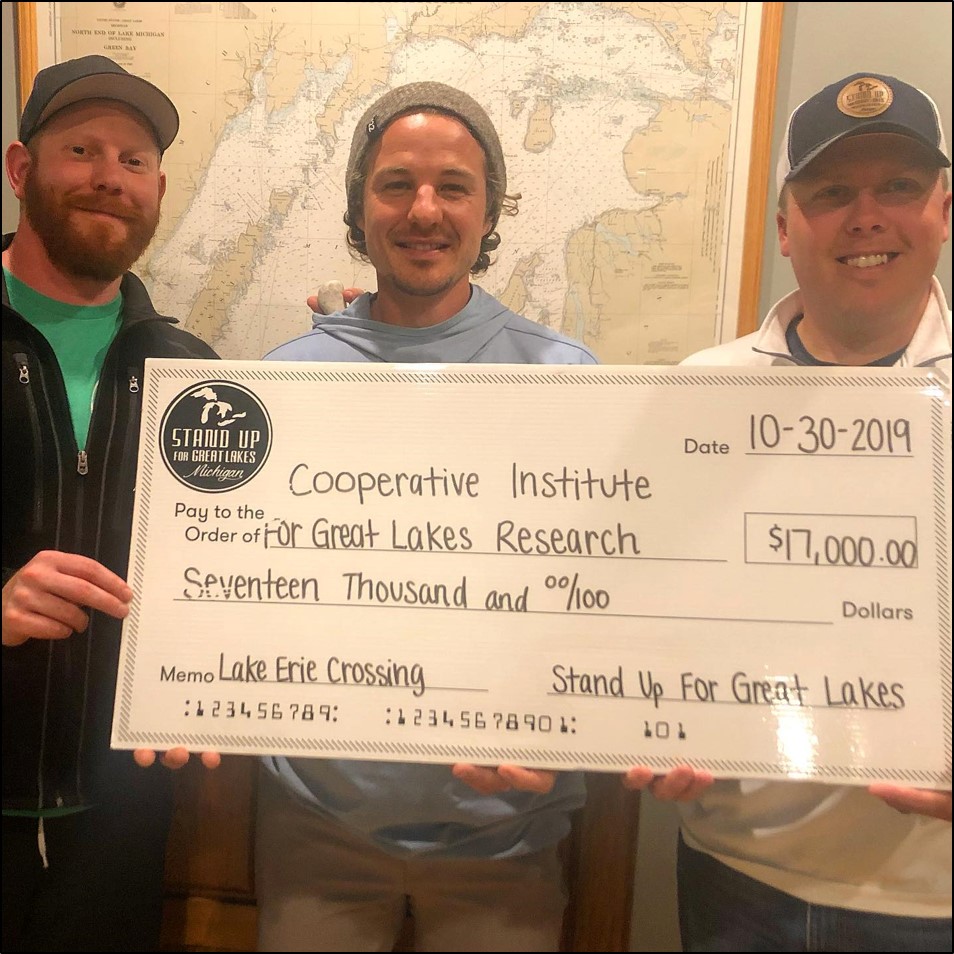
Stand Up For Great Lakes paddleboarders (L-R) Joe Lorenz, Kwin Morris, and Jeff Guy donate $17,000 to CIGLR. Photo Credit: Stand Up For Great Lakes.
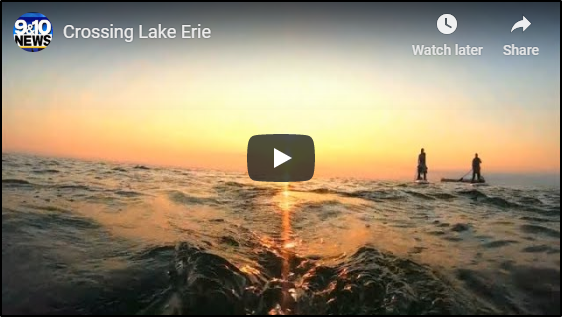 Experience the beauty, heat, and unbelievable sunset as the Stand Up For Great Lakes paddleboarders Joe Lorenz, Kwin Morris, and Jeff Guy show you the journey across their fourth Great Lake, Lake Erie. Eleven-time Emmy award winner Corey Adkins tagged along on this special 73 mile voyage from Belle Isle, Michigan to Catawba Island, Ohio to create this special documentary. The team dedicated $17,000 from their Lake Erie crossing fundraiser to CIGLR, who Joe Lorenz says “is doing spectacular work with algal bloom research and their efforts to safeguard the Great Lakes ecosystem. They are experts in Great Lakes issues, and we are thrilled to have them on our team.” CIGLR is using the donated funds to create the inaugural Stand Up for Great Lakes fellowship, which will support graduate student research at a CIGLR Consortium university. The 2020 recipient is Chelsea Salter and her advisor, Dr. Christopher Weisener at the University of Windsor.
Experience the beauty, heat, and unbelievable sunset as the Stand Up For Great Lakes paddleboarders Joe Lorenz, Kwin Morris, and Jeff Guy show you the journey across their fourth Great Lake, Lake Erie. Eleven-time Emmy award winner Corey Adkins tagged along on this special 73 mile voyage from Belle Isle, Michigan to Catawba Island, Ohio to create this special documentary. The team dedicated $17,000 from their Lake Erie crossing fundraiser to CIGLR, who Joe Lorenz says “is doing spectacular work with algal bloom research and their efforts to safeguard the Great Lakes ecosystem. They are experts in Great Lakes issues, and we are thrilled to have them on our team.” CIGLR is using the donated funds to create the inaugural Stand Up for Great Lakes fellowship, which will support graduate student research at a CIGLR Consortium university. The 2020 recipient is Chelsea Salter and her advisor, Dr. Christopher Weisener at the University of Windsor.
“Our institute is beyond grateful and amazed at this team’s motivation, strength, and persistence to make a difference and quite literally “Stand Up” for our beautiful Great Lakes!” says CIGLR Director, Dr. Bradley Cardinale.
CIGLR Announces New Policy Engagement Webpage!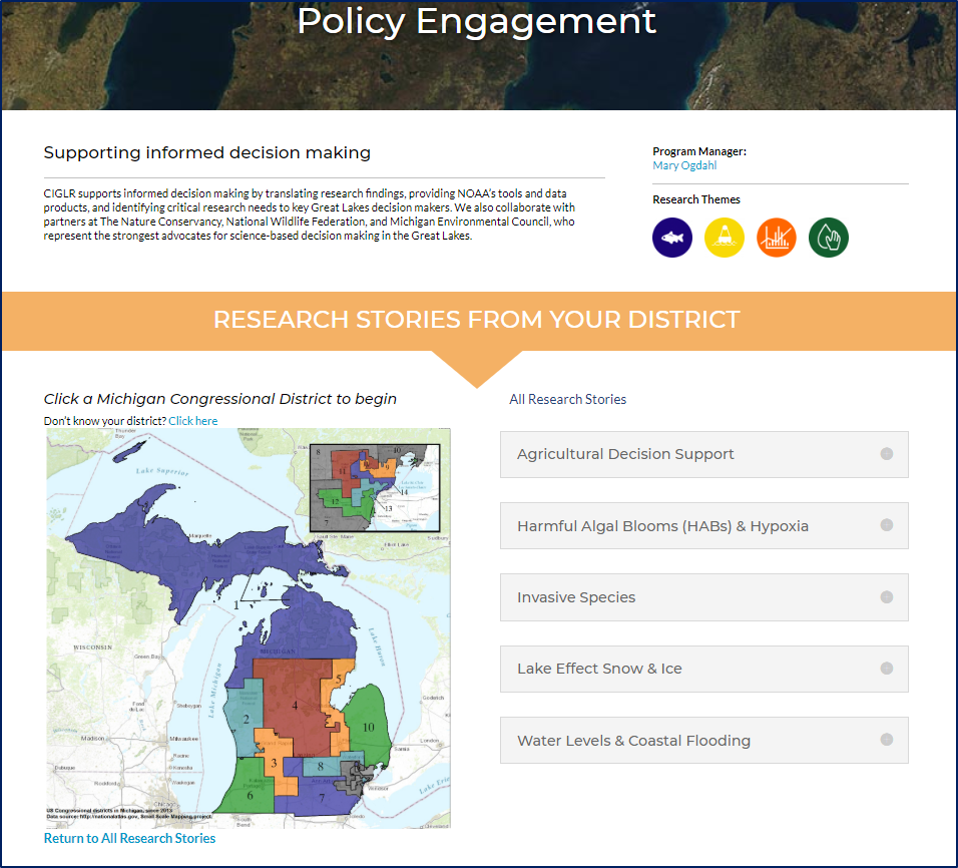
CIGLR has published a new interactive webpage that breaks down our research contributions and impacts by congressional district in the state of Michigan. Our institute supports informed decision making by translating research findings, providing NOAA’s tools and data products, and identifying critical research needs to key Great Lakes decision makers. We also collaborate with partners at The Nature Conservancy, National Wildlife Federation, and Michigan Environmental Council, who represent the strongest advocates for science-based decision making in the Great Lakes. Please explore our new webpage and share with your colleagues!
CIGLR Welcomes Three New Members to Our Team!
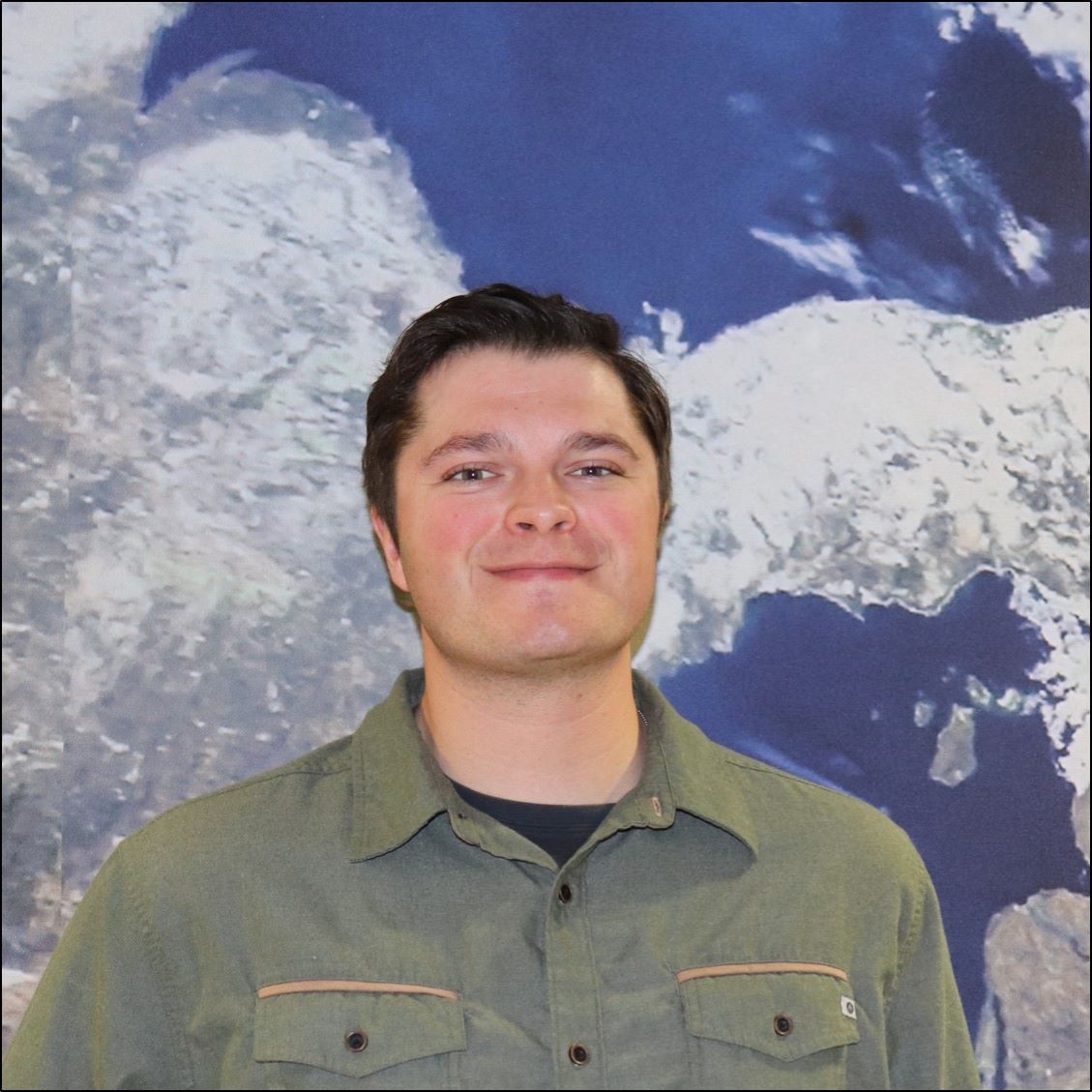
Hayden Henderson joins CIGLR as an Observing Systems Engineer working with Mechanical Technician Russ Miller (CIGLR), supporting both field and laboratory efforts related to the Synthesis, Observations and Response System (SOAR) project. Hayden received his Master of Science degree in Environmental Engineering from Michigan Technological University (MTU) in 2019.
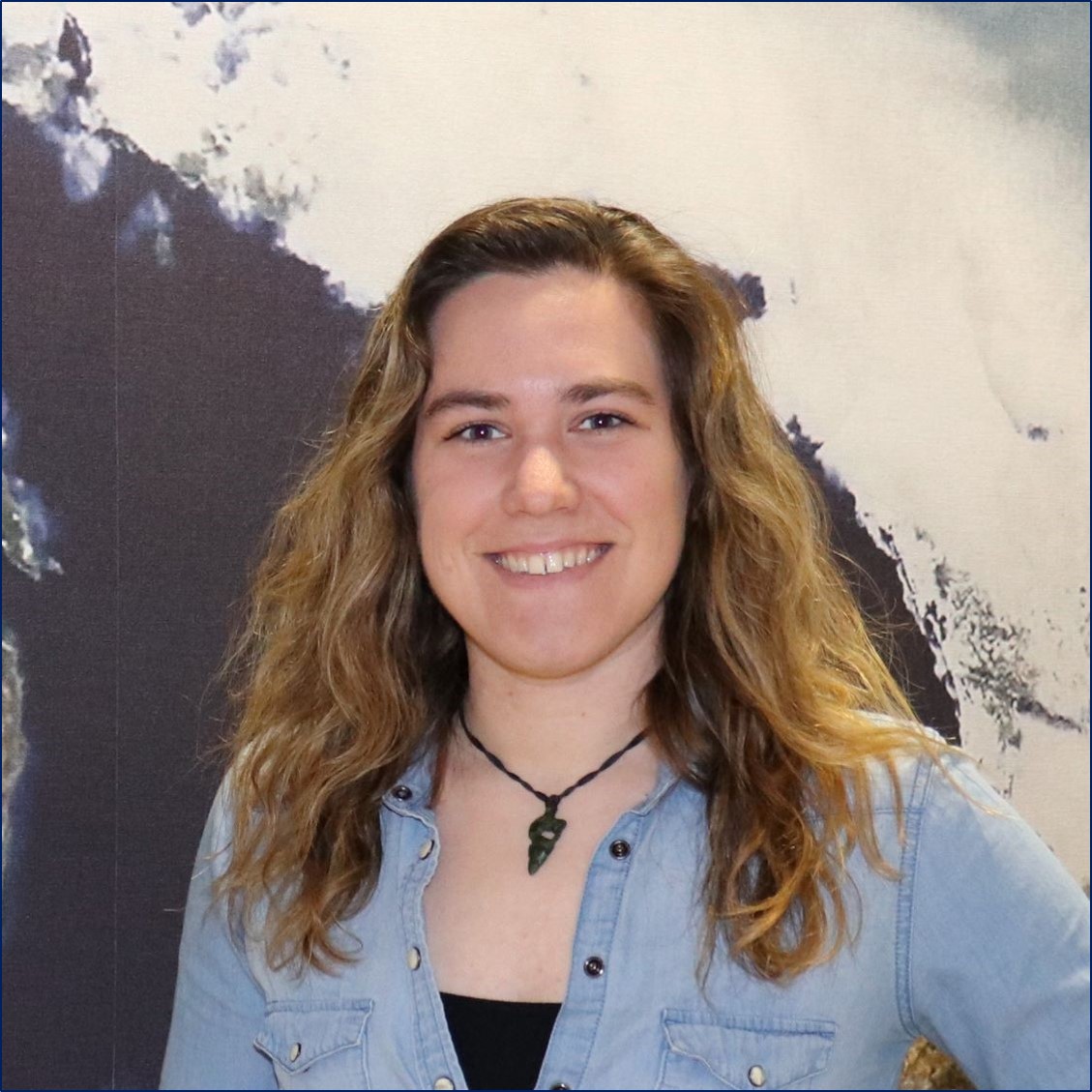
Holly Kelchner joins CIGLR as an Aquatic Ecology Research Analyst working with Drs. Casey Godwin (CIGLR) and Reagan Errara (NOAA GLERL) to organize and execute the western Lake Erie harmful algal bloom (HAB) monitoring cruises and laboratory toxin analysis efforts. Holly recently completed her Master of Science degree in Renewable Natural Resources from the Louisiana State University in 2019.

Dr. Yuchun (Yoyo) Lin recently joined CIGLR as a Postdoctoral Research Fellow working with Assistant Research Scientist Dr. Ayumi Fujisaki-Manome (CIGLR). Their research uses numerical modeling and data analyses to understand Great Lakes ice hotspots, ice cover predictions, and wave-ice interactions. Dr. Lin’s previous research includes physical, biological, and climatological studies of the ocean and atmosphere.
Research Institute Spotlight: Joeseph Smith
Great Lakes Research: Keeping Up With Big Data
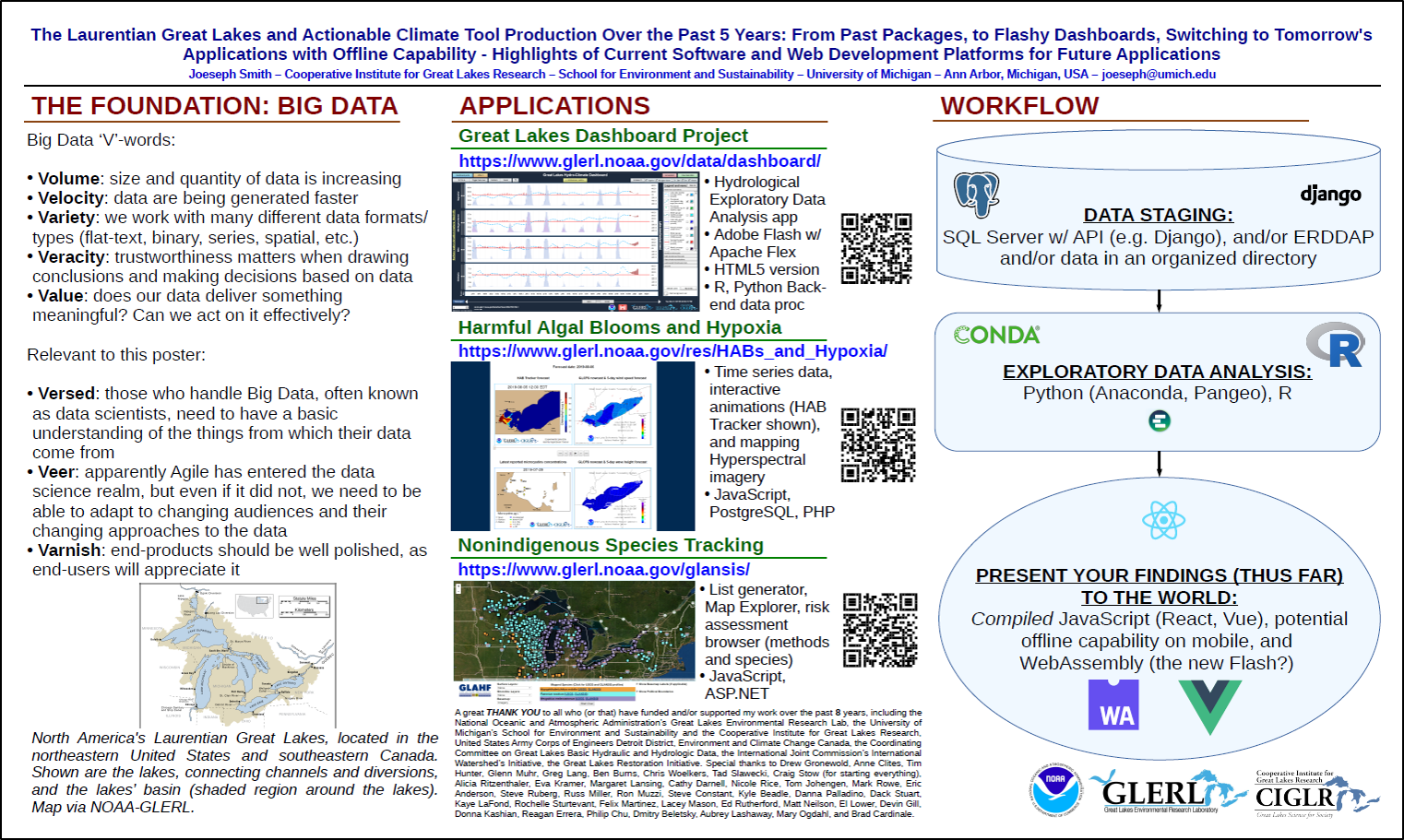
Joeseph Smith presented this poster at the 2019 American Geophysical Union Meeting. Photo Credit: Joeseph Smith.
One of CIGLR’s primary functions is to put Great Lakes science in the hands of society. With our partners at NOAA GLERL, we are at the forefront of monitoring and forecasting Great Lakes water quality, ecology, and water movement. Joeseph Smith, a General Programmer and Analyst for CIGLR, is currently working with NOAA GLERL and CIGLR scientists on processing the wide variety of data available to the scientists, producing visuals for peer-reviewed publications, and generating content for both NOAA GLERL’s and CIGLR’s webpages.
Recently, Joe attended the American Geophysical Union’s (AGU) annual meeting in San Francisco, California and presented on big data to applications, highlighting the seven ‘Vs’ of big data including volume, velocity, variety, variability, veracity, visualization, and value. Data scientists like Joe are challenged daily with the mountains of data available to them. Joe’s work demonstrated strategies to deal with inconsistencies in data structure and organization.
“My experience at AGU confirmed that the future of scientific big data and software development workflows is as diverse as the data themselves,” says Smith. “Big data will continue to have a critical role in Great Lakes science. The tools we use to organize and visualize the data are diverse and constantly evolving in concert with big data. This co-evolution makes putting Great Lakes science, and products thereof, in the hands of stakeholders faster and easier.”
